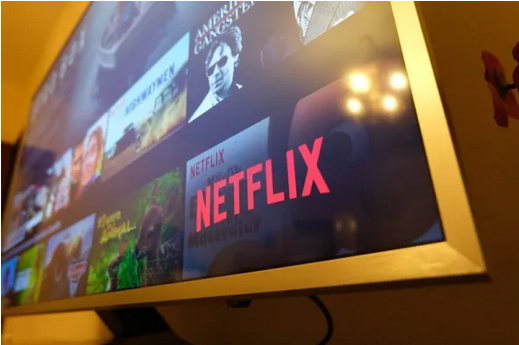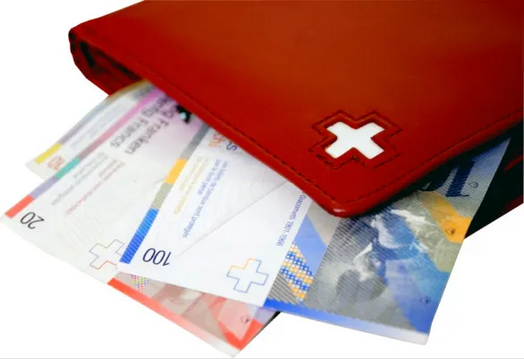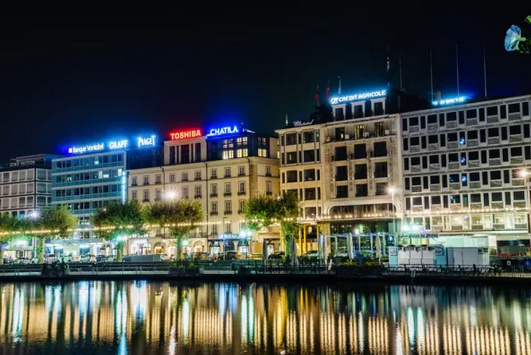© Debove Eric | Dreamstime.com Food, energy and housing costs are rising in Switzerland and consumers are beginning to change their spending habits. So far inflation in Switzerland has been moderate with annual inflation of 2.5%. However, according to FRC, a consumer association in French-speaking Switzerland, recent price rises are only the beginning, reported RTS. ...
Topics:
Investec considers the following as important: 3.) Personal Finance, 3) Swiss Markets and News, Editor's Choice, Featured, newsletter, Personal finance
This could be interesting, too:
Investec writes The global brands artificially inflating their prices on Swiss versions of their websites
Investec writes Swiss car insurance premiums going up in 2025
Investec writes The Swiss houses that must be demolished
Investec writes Swiss rent cuts possible following fall in reference rate
Food, energy and housing costs are rising in Switzerland and consumers are beginning to change their spending habits. So far inflation in Switzerland has been moderate with annual inflation of 2.5%. However, according to FRC, a consumer association in French-speaking Switzerland, recent price rises are only the beginning, reported RTS.
The biggest driver of Swiss inflation is energy where prices have leapt 25%. This appears to be affecting consumer behaviour. During the first week of March purchases of petrol dropped by 10-15% in Switzerland. This could reflect lower consumption or a jump in the number of people filling up across the border where governments have cut fuel taxes in response to rising fuel costs.
Pascal Jeannera of the FRC described the 75% rise in the price of mazout, an oil used to heat homes, as a ticking time bomb. Consumers only feel the pain of such price rises when they need to refill their tanks so it takes time for these higher prices to bite. The rise in pump prices of around 30% has been relatively lower, a reflection of the higher per-litre tax added to motoring fuel compared to mazout. In some parts of Switzerland gas prices have leapt by 90%. The prices of other goods and services reliant on fossil fuels have risen too. Flights now cost 50% more than a year ago, according to Jeannera.
Stefan Meierhans, also known as Mr Price, has a similar view to the FRC. Meierhans, a government appointed price watch dog, describes 2022 as a year of many challenges on the financial front, especially for those on low incomes. He is also concerned that businesses may use current cost movements as cover to make unjustified price increases, something made easier by the lack of transparency in Switzerland that gets in the way of greater price competition. Meierhans points in particular at Switzerland’s electricity network which he says charges unjustifiably high prices. He argues for federal government intervention to push down these charges, something that could save Switzerland’s consumers millions of francs.
With annual inflation of 2.5% Switzerland is fairing better than most countries. Prices in the US are up 8%, inflation in the UK is forecast to exceed 10% and ranges from 5% to 10% across much of the rest of Europe.
Since the end of January 2022 a strengthening Swiss franc has dampened the local rise in prices of imported goods and services. However, as central banks abroad begin to increase interest rates relative to Swiss rates, there is now downward pressure on the franc which has already weakened by around 2.5% against the Euro over the last month. A weaker franc means more expensive imports.
European politicians are eager to be seen as “doing something” to oppose the Russian regime following Moscow’s invasion of Ukraine. Most European regimes have wisely concluded—Polish and Baltic recklessness notwithstanding—that provoking a military conflict with nuclear-armed Russia is not a good idea. So, “doing something” consists primarily of trying to punish Moscow by cutting Europeans off from much-needed Russian oil and gas.
The problem is this tactic doesn’t do much to deter Russia in anything other than the short term because Russian oil can turn to numerous markets outside of Europe. Most of the world, after all, has declined to participate in the US and European embargoes and trade sanctions, opting for more measured approaches instead.
By limiting energy sources for Europeans, however, Europe’s regimes are likely to succeed in pushing up the cost of living for Europeans while doing little to cut off Russia’s economy from global markets.
Can Europe Totally Cut Itself Off?
For understandable reasons, most European regimes have been reluctant to completely cut themselves off from Russian oil and gas. This is because Europe has become increasingly dependent on Russian natural gas as Europe’s regimes have increasingly committed themselves to unreliable “renewable” energy sources. This is especially the case in Germany—Europe’s largest economy—which faces a “sharp recession” if it cuts off Russian gas. There has been much talk of heavy sanctions against Russia, but this has stopped short of a full-on ban on Russian oil and gas imports.
Nonetheless, the European Parliament last week began drafting a plan for a full embargo of Russian oil and gas.
Yet, even as pressure mounts for Europe’s regimes to be seen as doing more to stymie Moscow, European politicians want to proceed slowly. This, however, only gives Moscow more time to adjust logistics to transfer oil exports to other parts of the world.
If Europe were to fully ban oil immediately, this would send oil prices soaring for Europe and others. According to analysts at JP Morgan:
A full and immediate embargo would displace 4 million barrels per day of Russian oil, sending Brent crude to $185 a barrel as such a ban would leave “neither room nor time to re-route [supplies] to China, India, or other potential substitute buyers,” the investment bank said in a note. That would mark a 63% surge from Brent’s close of $113.16 on Monday.
This could trigger recessions across Europe’s economies, and policy makers know it. Hungary, for instance, has repeatedly opposed an embargo on Russian oil out of concerns for ordinary Hungarians, who already have a standard of living well below people in wealthier countries like Germany and France. Meanwhile, French policymakers have conveniently timed an embargo to occur after the French elections this year.
Even beyond the short term, oil woes for Europe would not necessarily end, because the Organization of the Petroleum Exporting Countries (OPEC) has already stated that it cannot pump enough oil to replace Russian oil.
In any case, Europe does not appear to be succeeding at convincing OPEC to do much to punish or isolate Russia in oil markets. The Saudi regime has only announced increased cooperation with Russia in recent months, and the Ukraine war does not appear to be an important topic for OPEC.
This isn’t to say that none of this will hurt Moscow at all. Time will be necessary to modify Russian oil markets to serve other consumers outside Europe, and this will mean declining revenues, at least in the short term. Moreover, US financial sanctions make it more difficult for Russian merchants to do business globally.
In spite of the West’s claim that it’s fighting some kind of war for democracy and against authoritarianism, though, it looks like the biggest beneficiaries of growing European embargoes on Russian oil are some of the world’s most authoritarian regimes. Beijing will happily accept oil and gas supplies no longer sold in the West, and possibly at a discount as potential markets for Russian oil shrink in number. Moreover, if oil prices are driven up by dislocations caused by European embargoes, this is likely to benefit at least some of the oil-fueled dictators among OPEC’s members.
Meanwhile, ordinary Europeans are likely to find themselves paying much more for energy—and consequently for other goods and services as well. Recession risk is also growing in Europe.
The United States to the Rescue?
As is so often the case, Europe has looked to the United States to bail it out yet again. The Biden administration has stated that it can send US liquefied natural gas (LNG) to Europe and largely replace Russia in meeting Europe’s energy needs. But it’s not that simple. As David Blackmon has noted at Forbes:
While committing the US to help Germany and other European nations wean themselves off of Russian natural gas seems to be a noble goal, there is just one problem: The President apparently didn’t talk [to] the US LNG industry about it before he made the agreement. Reading the quotes from executives at Tellurian in the New York Times article linked here, it is apparent that they were caught off-guard by the President’s announcement. “I have no idea how they are going to do this …”
In the age of covid, federal politicians have no doubt become accustomed to conjuring whatever they want through the “miracle” of printing money. But in the real world, it’s still necessary to produce oil and gas (and other commodities) through actual physical production. Also complicating matters is the fact that the oil and gas industries in the United States are still largely in private hands. This means Joe Biden can promise whatever he wants but the private sector will still have to do the work, and market incentives may not necessarily favor selling everything to Europe.
Not even money printing can make oil and gas magically appear on the other side of the Atlantic.
Ultimately, the frenzy of sanctions and embargoes pursued by “the West” may do little more than raise the cost of living for its own residents. Even worse are the side effects of these sanctions for poorer countries in Africa and Asia, many of which need Russian grain and Russian oil for their residents to live above subsistence levels.
These policies will make life more difficult for ordinary innocent people worldwide while failing to actually end the war in Ukraine. But that’s a price wealthy men like Biden and Emmanuel Macron are apparently willing to pay.
Tags: Editor's Choice,Featured,newsletter,Personal finance









